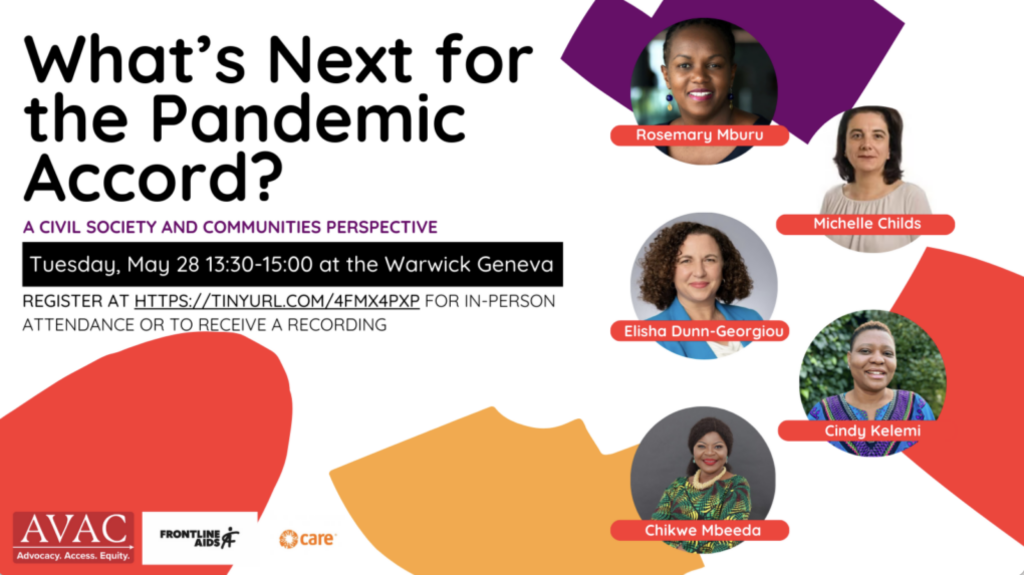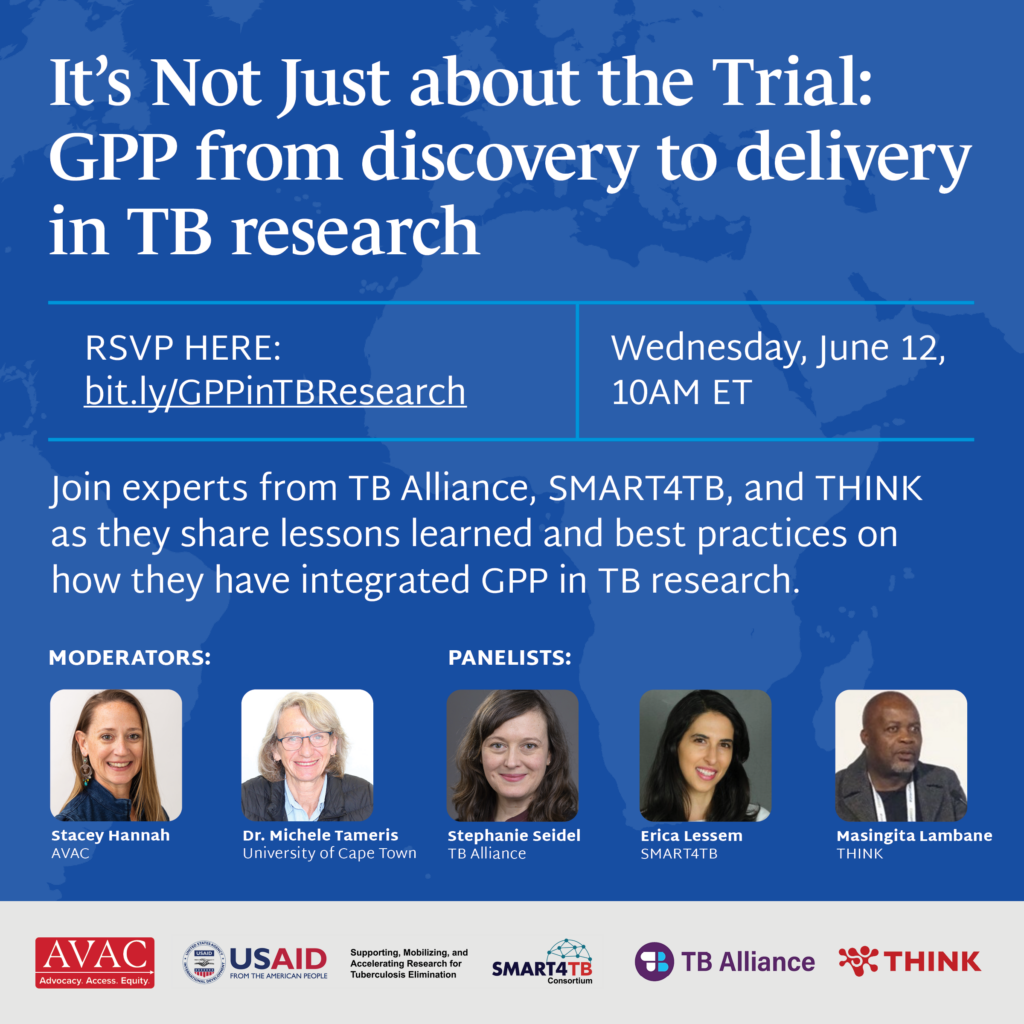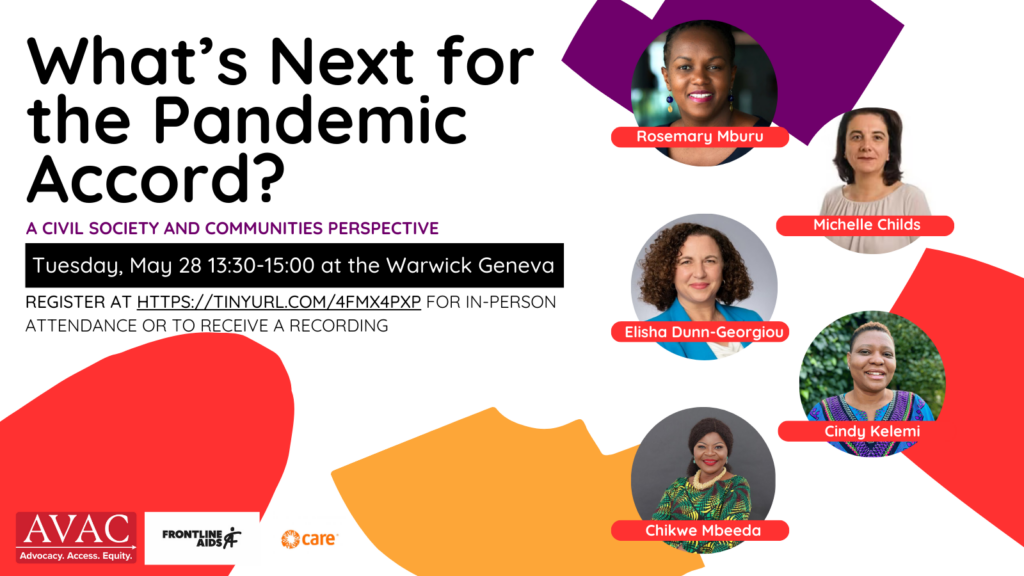We are thrilled to announce AVAC’s 3rd class of Advocacy Navigators! This group of 12 emerging advocates from nine countries was selected from 100s of interested applicants. They will be paired with six mentors, seasoned advocates who are alumni of AVAC’s Advocacy Fellows program. These mentors provide support and guidance as the Navigators strengthen and expand their skills in HIV prevention advocacy.
Meet the 2024 Advocacy Navigators
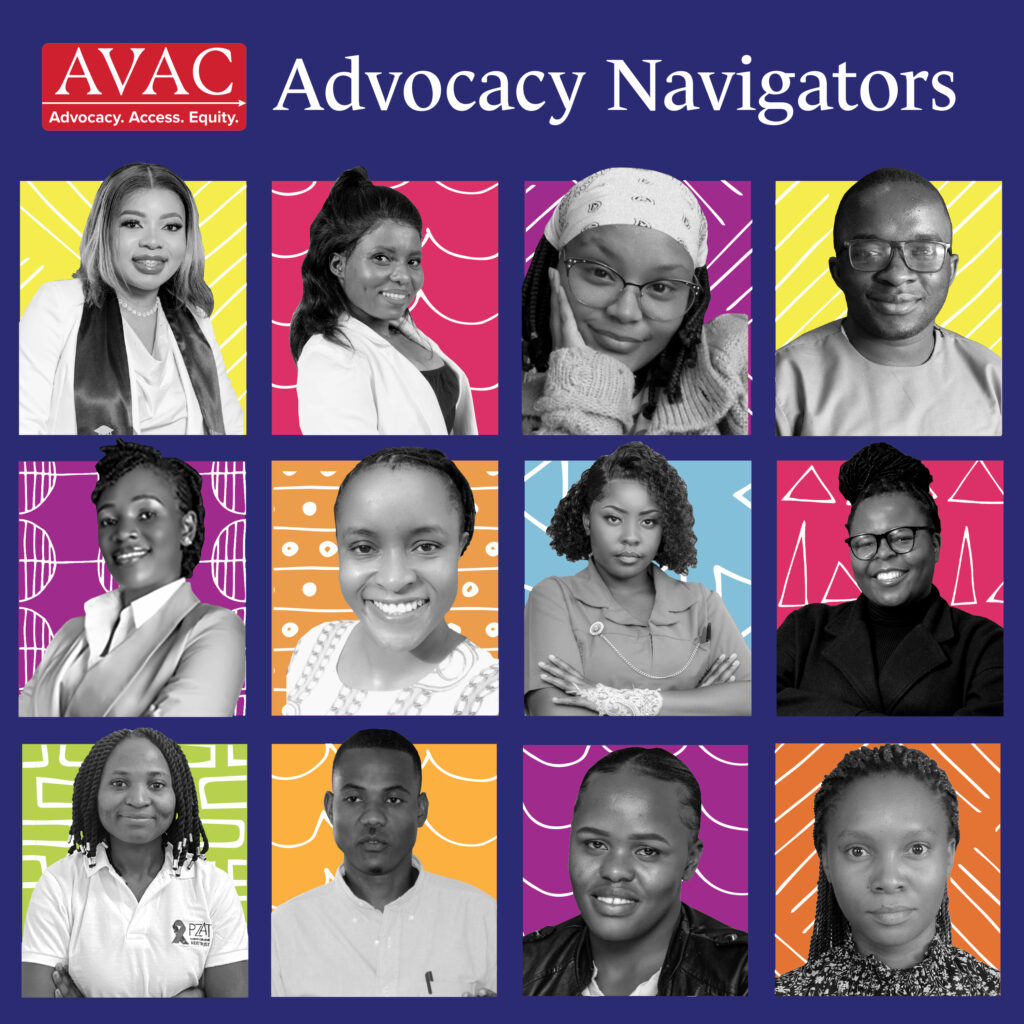
Elizabeth Zahabu, Tanzania; Gcebile Yvette Dlamini, Eswatini; Jessica Booysen, South Africa; Joseph Robert Linda, Uganda; Nawanyaga Gloria, Uganda; Rita Nyaguthii Gatonye, Kenya; Renny Mulala, Zambia; Madalitso Juwayeyi, Malawi; Rumbidzai Munhanzi, Zimbabwe; Takunda Clement Chanetsa, Zimbabwe; Nicole Ondisa Oduya, Kenya; Sharon Ramantele, Botswana.
Following the model of the AVAC Advocacy Fellows program, Navigators tackle curated coursework, focused networking, and personalized mentorship over six months.
Meet the 2024 Mentors
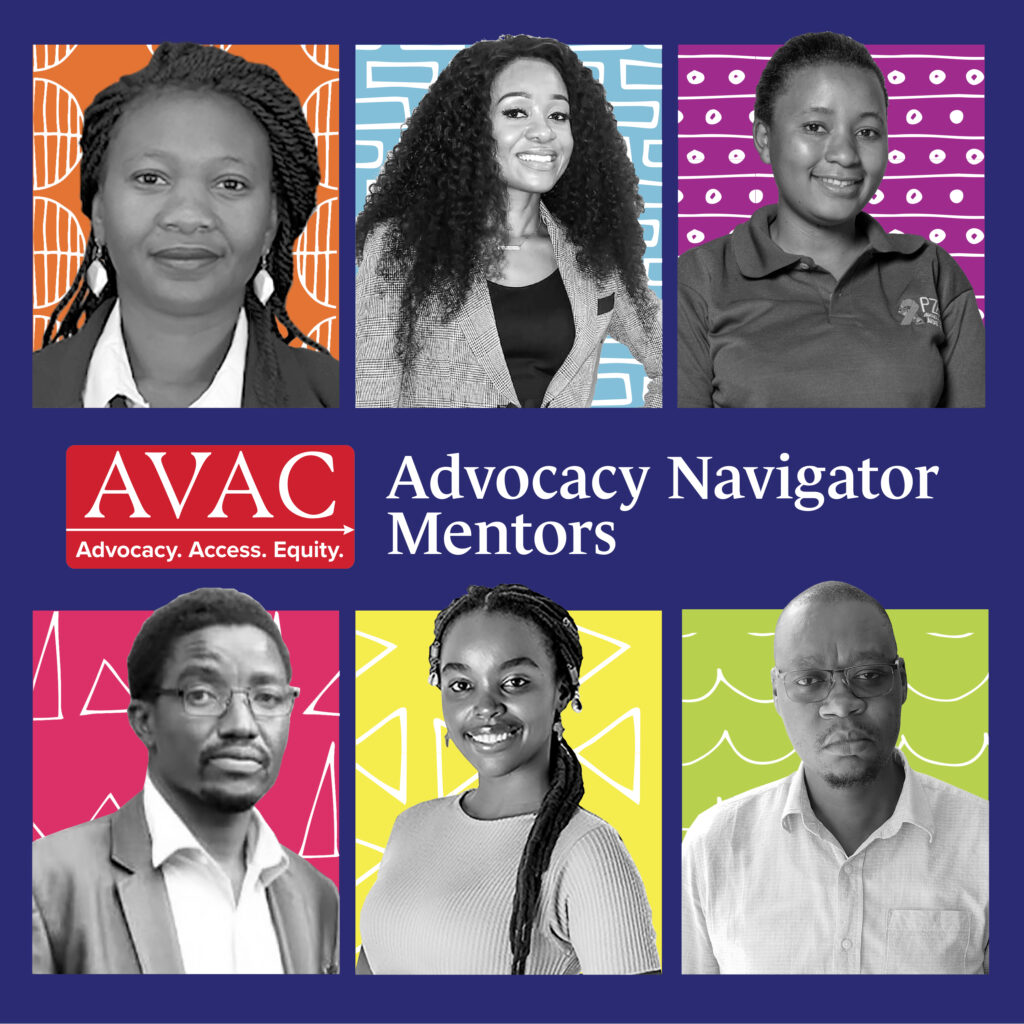
Anna Miti, Zimbabwe; Chilufya Hampongo, Zambia; Cleopatra Makura, Zimbabwe; Eric Mcheka, Malawi; Dr. Lilian Benjamin Mwakyosi, Tanzania; Simon K’Ondiek, Kenya.
And a big congratulations to the graduating cohort of Advocacy Navigators who recently completed the 2023 program. Nine Navigators implemented new advocacy projects in their communities on the rollout of CAB for PrEP and DVR, meaningful engagement of adolescent girls and young women (AGYW) in HIV prevention, changing the age of consent, and advocacy for accessible HIV prevention for people with disabilities, sex workers and other key populations.
About the Advocacy Navigators Program
Since 2009 with the establishment of the AVAC Advocacy Fellows program, AVAC has recognized the imperative to support HIV prevention advocates with the knowledge and skills they desire. The Fellows Network represents a global movement of seasoned veterans and passionate newcomers, who call out neglect, insist on equity, monitor commitments and identify solutions. Now the Advocacy Navigator program, which is part of the Coalition to Accelerate & Support Prevention Research (CASPR), is leveraging the strength of this extraordinary program and its alumni community to expand and strengthen the network and continue to support and engage advocates for the long-term.
The Advocacy Navigator program combines training and mentorship to young and emerging advocates in the field of HIV prevention advocacy. The program mobilizes a cohort of ambitious individuals and provides them with resources to build their knowledge, skills and confidence to meaningfully advance HIV prevention advocacy in their communities and countries. The program includes online coursework, personalized mentorship, and opportunities to directly apply learning through a community advocacy project. The program begins with three months of coursework and project development, followed by three months when advocates implement their plans.
Keep up to date with this year’s Navigators and stay tuned for updates on their upcoming advocacy projects!
